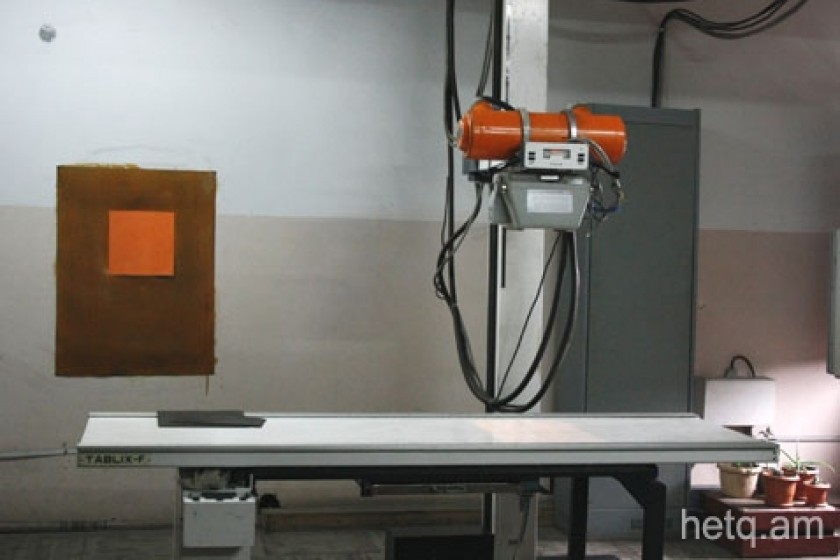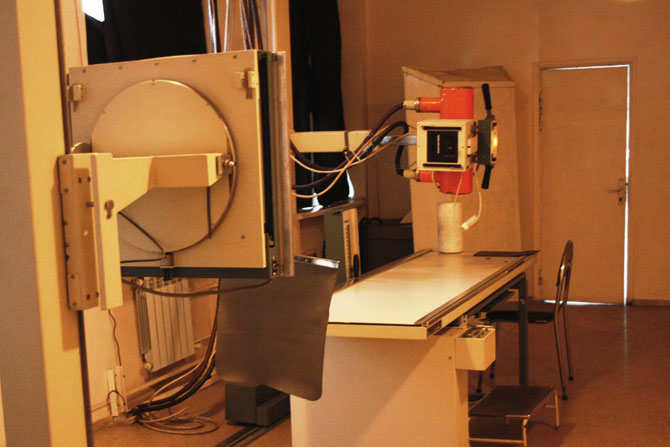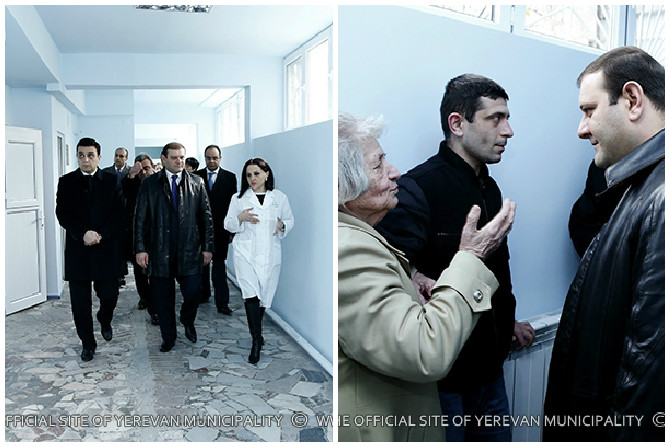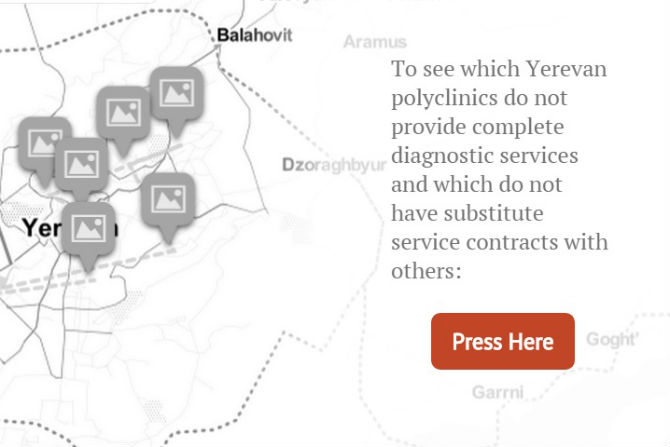
Yerevan Polyclinics: When Patients Have to Pay for “Free” Medical Exams
By Ani Hovhannisyan, Marine Madatyan
In the first installment of this series taking a look at the Soviet era medical equipment still being used in Yerevan’s government-run polyclinics, we noted that patients cannot receive proper diagnostic care due to the advanced age of the machines.
They often break down. Some work on a limited basis.
Hetq telephoned all the polyclinics in Yerevan, asking management if they provide x-ray, fluorography and dental x-ray exams. It turns out that nine of the 24 polyclinics in Armenia’s capital cannot provide full diagnostic services. They either do not have the equipment or the equipment they do have is too old to provide accurate results.
Armenia’s Minister of Health has set standards for free medical care provided by the government. Accordingly, if a polyclinic does not have a certain piece of diagnostic equipment it must send the patient to another medical institution that does. The two institutions draw up a service contract stating that the organization with the necessary examination equipment must diagnose the patient free of charge. The polyclinic that sent the patient in the first place must pay the other from funds allocated by the government.

Hetq wrote to the Yerevan Municipality, inquiring what options patients have who go to a state polyclinic, cannot get a proper diagnostic test due to shoddy equipment, and are never forwarded to a substitute medical outfit.
The municipality’s press office responded that: “The medical department reports that of the 24 ambulatory polyclinics operating under the jurisdiction of Yerevan, only three do not have x-ray units and that in one polyclinic the x-ray machine is off-line. However, they have entered into agreements with other medical institutions to provide x-ray diagnostics.”
According to the municipality’s statement, only two polyclinics have written up service contracts in order to send patients elsewhere. One of the contracts sends patients from the Noragavit polyclinic to Polyclinic #13. The other contract allows patients from Polyclinic #9 to the Malatya Medical Center.
The Yerevan Municipality also reports: “For the first time in the past thirty years, under Mayor Taron Margaryan’s initiative, two new generation x-ray machines have been obtained. To furnish the medical establishments with completely new equipment requires great financial resources.”

We should note that the polyclinics operating under the jurisdiction of the Yerevan Municipality, but financed by the national budget, obtain new medical equipment not at the initiative of the mayor but rather under the Yerevan community’s annual budgetary program. Hetq wrote to the municipality wanting to know why patients deprived of receiving free diagnostic services due to old equipment weren’t being sent elsewhere, as required by law. We didn’t ask when all 24 polyclinics would be getting new equipment.
It only took us a day to get on the phone and find out which polyclinics had the necessary equipment to conduct thorough examinations and which didn’t. As to why the municipality’s department of health wasn’t aware that Polyclinics 4, 8, 12, 16, 22 and the Karmir Blour Clinic are not able to provide fluorography or dental (among other body parts) x-rays remains puzzling.
Perhaps the municipality isn’t aware that these polyclinics also lack contracts to send patients elsewhere for substitute services.
If it is not possible to update equipment at all Yerevan polyclinics at once, as the municipality underlines in its response, then those polyclinics outfitted with new machines obtained at the “initiative of the mayor” can service all those patients whose local clinics lack such resources.
By not signing substitute service contracts between polyclinics, the Yerevan Municipality is hoarding national budget resources to the detriment taxpayers. Patients who cannot get examined at their local clinic are forced to visit private medical establishments and pay.
According to Article 4 of the RA Law on Medical Assistance and Service to the Populace, “Everyone has the right to receive medical assistance and service at no charge, within the scope of targeted health programs ensured by the state.”
 Videos
Videos Photos
Photos





Write a comment